Do I Need to Go to Detox For Vicodin Addiction?
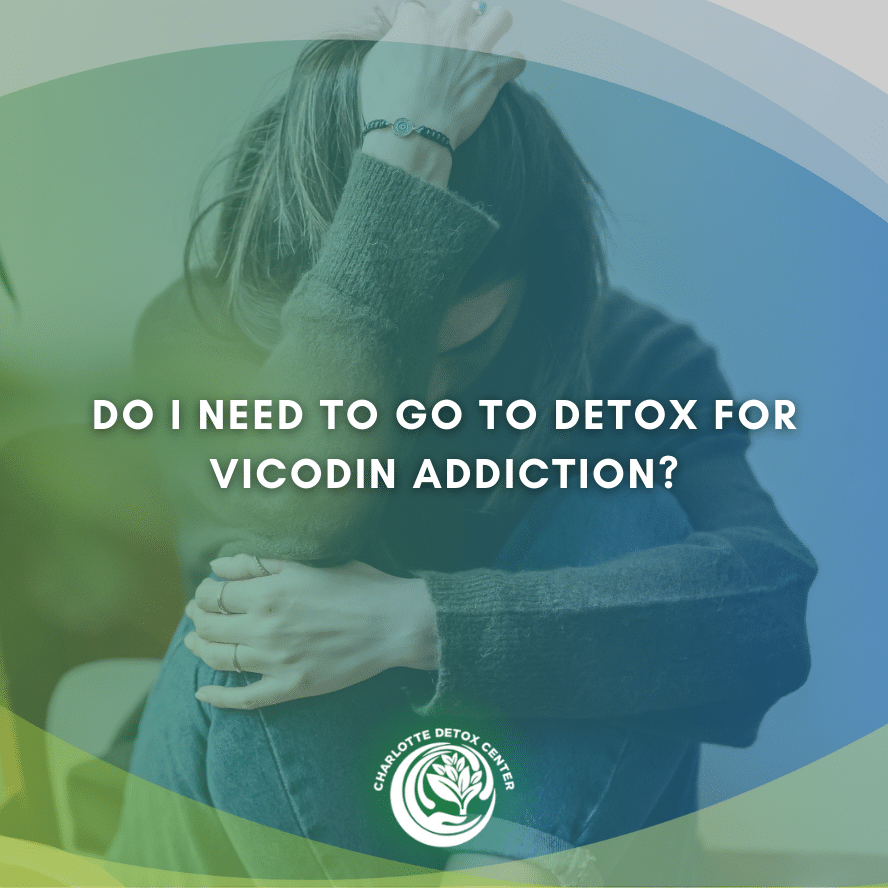
Medically Verified: 2/1/24
Medical Reviewer
Chief Editor

All of the information on this page has been reviewed and verified by a certified addiction professional.
Vicodin is a prescription opioid pain medication with a high potential for abuse. Individuals may receive a prescription for this drug when suffering from moderate to severe pain. Vicodin contains hydrocodone, which is classified as a Schedule II drug.[1] Because of this, if you use Vicodin for an extended period, you may become physically dependent on the drug.
Once physical dependence forms, Vicodin abuse can lead to opioid withdrawal symptoms. If you abruptly cease your Vicodin use, you will develop symptoms of withdrawal that require medical treatment. The best way to cope with these symptoms is to get help from a professional medication-assisted detox program.
A Vicodin detox center in Charlotte, North Carolina can help you cope with your withdrawal symptoms, prepare for rehab, and begin your recovery journey.
What Happens When You Stop Taking Vicodin?
Vicodin contains hydrocodone, which is a habit-forming opioid drug. When you take Vicodin, the hydrocodone attaches to opioid receptors in your brain. This causes pain relief as well as increased levels of dopamine, leading to feelings of intense euphoria. Repeated Vicodin use impacts the areas of the brain responsible for reward and impulse control, so habitual use can lead to cravings or urges to use the drug over and over again.
Once you have experienced the cravings for Vicodin, your body has likely become dependent on the drug. As your tolerance builds, you will begin to require more and more of the substance to produce the same effect. Abruptly stopping the use of this substance will cause symptoms of withdrawal if you have been taking Vicodin for an extended period of time. This is because your body has become accustomed to the presence of hydrocodone.
Symptoms of Vicodin Withdrawal
The symptoms of Vicodin withdrawal will vary in severity depending on the dosage you consume and how frequently you take it, but they are similar to the symptoms of other forms of opioid withdrawal.
Vicodin withdrawal symptoms typically include:[2]
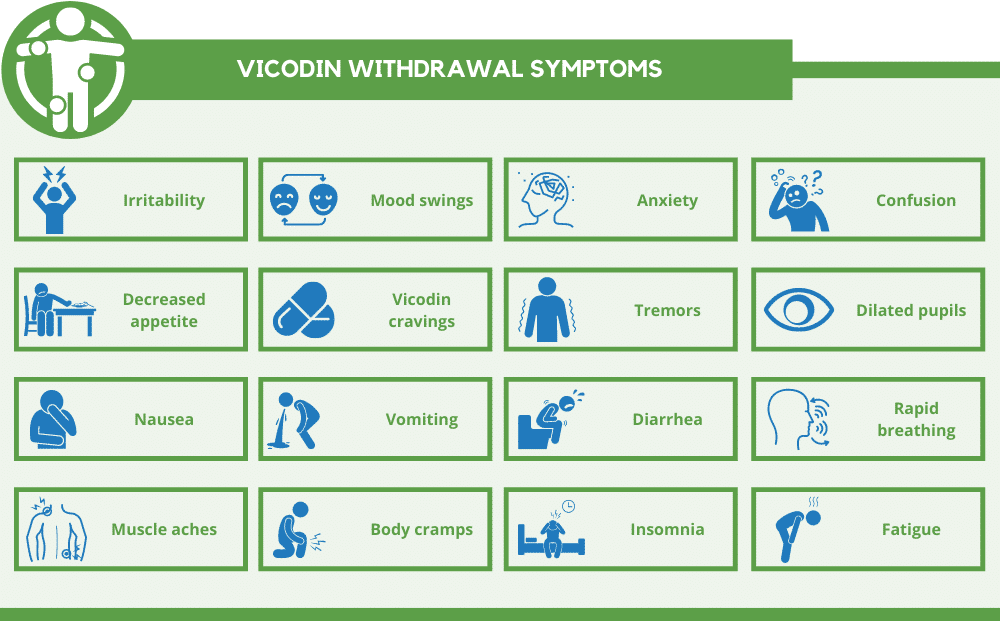
- Irritability and mood swings
- Anxiety
- Confusion
- Decreased appetite
- Intense cravings for Vicodin
- Tremors, shivering, or goosebumps
- Dilated pupils
- Nausea and vomiting
- Diarrhea
- Rapid breathing
- Muscle aches or body cramps
- Insomnia or fatigue
You may be at high risk for relapse if you try to detox alone. Because of this, you should never attempt to detox at home. A Vicodin detox center in Charlotte can help.
How a Drug Detox Center Can Help You Manage Vicodin Withdrawal
Vicodin withdrawal can become extremely painful and uncomfortable. Even more worrisome, if your symptoms are left untreated they could lead to lasting adverse health effects. Because of this, it’s important to seek help from an opioid detox center.
There are several ways a Vicodin detox center can help you cope with withdrawal:
Medications
You may be prescribed medications during detox to soothe the severe symptoms of Vicodin withdrawal. The most common medications used include buprenorphine and methadone. Both medications are partial opioid agonists, meaning they activate opioid receptors in the brain. This makes your brain believe it is receiving the Vicodin, causing eased symptoms of withdrawal without providing a high. Typically, doctors will taper you off of these medications over time to prevent you from experiencing withdrawal symptoms.
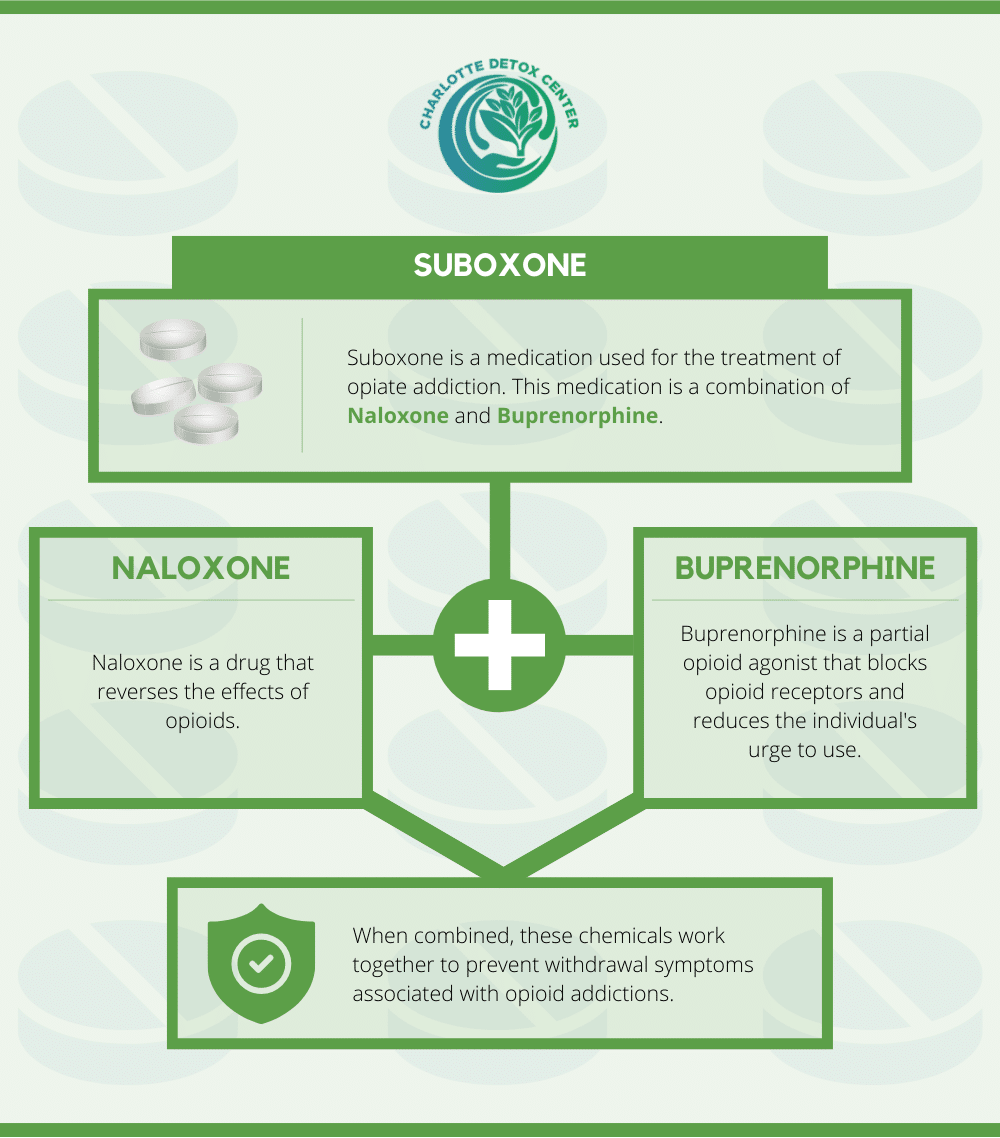
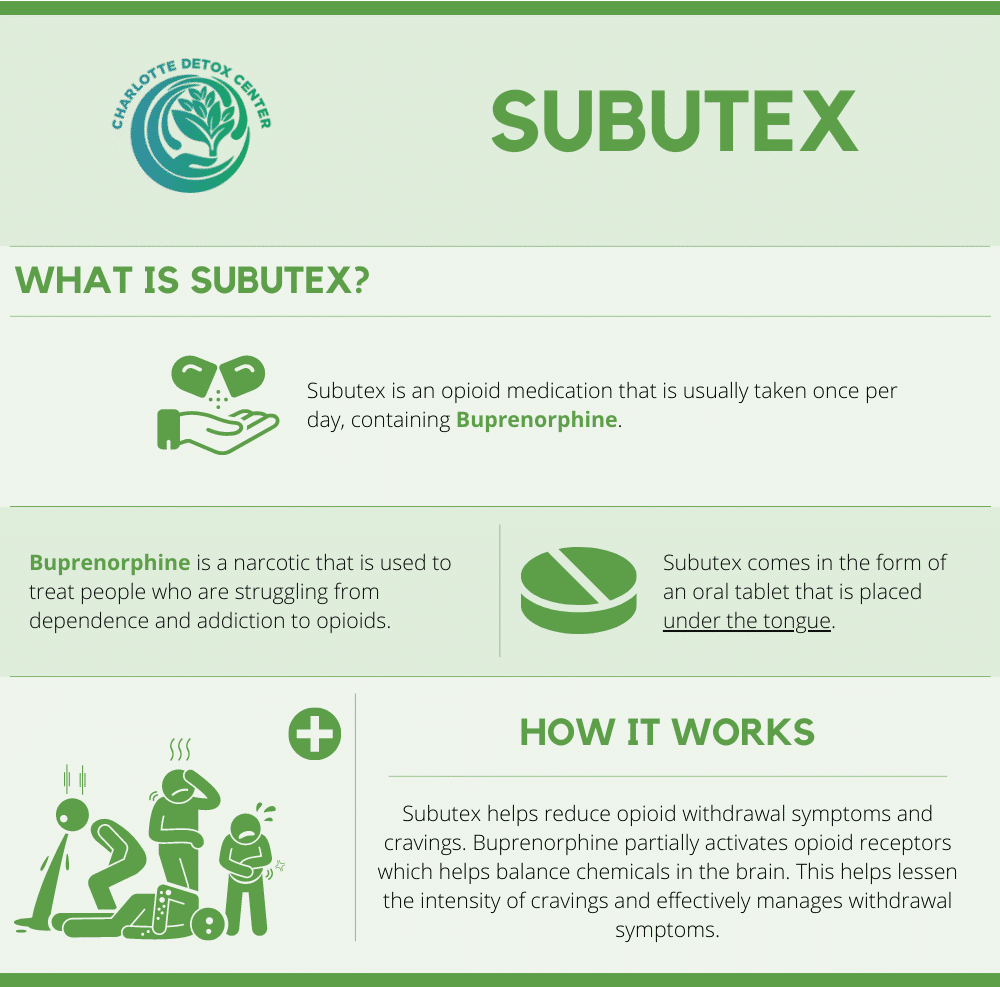
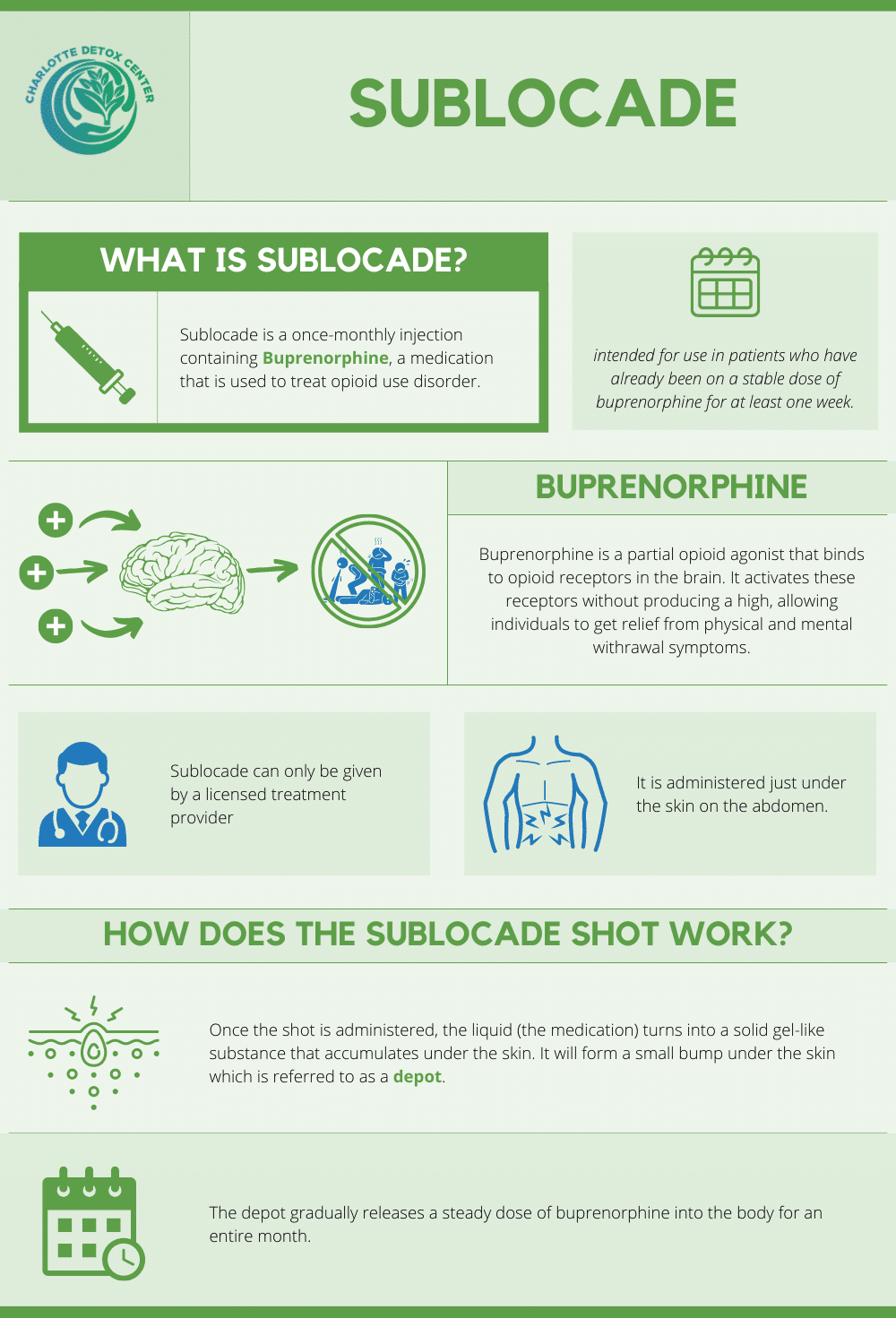
Monitoring
During detox, you will be monitored for health and safety reasons. Nurses will come in to perform routine vital checks to ensure that your blood pressure, heart rate, and body temperature are at safe levels. If they notice an issue, they will provide you with medical treatments and monitor you closely for improvement.
Additionally, psychiatrists will monitor your mental state, ensuring that you are not experiencing severe symptoms of depression, anxiety, or insomnia. If you are, they will promptly treat you with medications or evidence-based therapies.[3]
Support
Going through Vicodin withdrawal can be extremely mentally taxing. You may feel depressed, anxious, or feel like giving up on sobriety. All of these feelings are completely normal. Thankfully, the doctors, nurses, and psych staff are trained to provide you with the support you need to help you stay on track. Therapy, group counseling, and support groups are available throughout detox. Additionally, you will be surrounded by other patients who are struggling with the same issues. This can help you to feel less alone and gain insight from other patients about what works for them.
Treatment Planning
Detox is only the first step in addiction treatment. Once your withdrawal symptoms have subsided, you will begin working with your doctors and therapists to create a treatment plan. First, they will assess whether you need dual diagnosis treatment for additional mental health conditions. If so, they will refer you to a dual diagnosis addiction treatment program. They will also help you decide which types of programs to attend. This may include inpatient rehab, intensive outpatient programs, outpatient rehab, and sober living programs.
Find a Vicodin Detox Center in Charlotte, North Carolina Today
Vicodin addiction is a serious condition that must be treated by qualified professionals. If you or a loved one struggles with addiction to Vicodin, finding an opioid treatment program that fits your needs is vital. At Charlotte Detox Center, we pride ourselves on providing high-quality medication-assisted detox services, evidence-based therapies, addiction education, and treatment planning. Contact us today for more information on our Vicodin detox program.
References:
